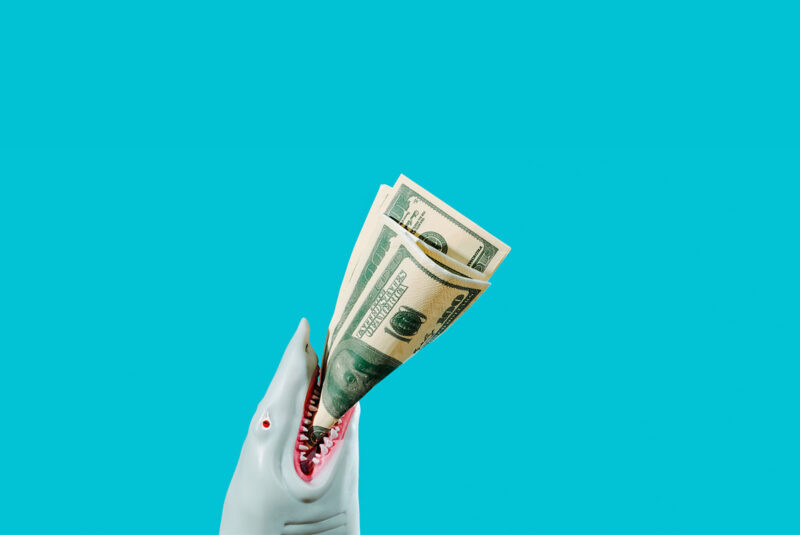Adulting has its fun side, but paying bills usually doesn’t fall in the fun category. For many of us, paying bills can be time-consuming, boring and even stressful.
What wouldn’t we give for a convenient, easy, efficient way to pay our bills? Thankfully, a solution exists: automatic bill payments.
Automatic bill payments can rid you of the tedious task that is paying your bills every. single. month. But how do they work, and are they a good idea?
We’ll tell you everything you need to know about using automatic bill payments so you can decide whether they “fit the bill” for you.
How Do Automated Bill Payments Work?
Automatic bill payment automatically transfers money from your bank account or card account to pay a bill to a payee, like a lender, vendor, merchant or other creditor. The transfer can be made electronically from your checking account, a direct pay app like Venmo, your debit card or credit card or another account you’ve set up.
As long as the creditor accepts automated payments, you can use automated bill payments to pay almost any bill, installment loan or line of credit.
Here are some bills you might pay automatically:
- Mortgages
- Car loans
- Utility bills
- Subscriptions and streaming services
- Credit cards payments
- Student loans
- Phone payments
How Do I Set Up Automatic Payments?
Setting up automatic bill payments (sometimes referred to as online bill pay or autopay) is usually quick and easy.
You can set up your automated payments through:
- Your financial institution (typically a bank or credit union)
- Your credit card or debit card
- Through a merchant website or app
Setting up payments through your financial institution
Banks and credit unions often allow customers to pay their bills through an online bill payment system on their website or mobile app. Your bank or credit union will pay your payee with an automatic clearing house transfer (a type of electronic funds transfer).
To use your bank or credit union’s online bill pay, you must detail who to pay, how much to pay and when to pay. Sometimes you can even set up your automatic bill payments over the phone, in person at a branch or by mail.
One of the advantages of setting up automated payments through your bank or credit union is that your account information is never shared with another party.
Setting up payments using your credit card
When you’re using your credit card for automated payments, you need to supply your payee with your credit card information, including the card’s number, expiration date and security code. The charge, which will appear on your credit card statement, will still need to be paid.
If you don’t want your payee to keep your card information on file, setting up automatic payments through your financial institution might make more sense.
Setting up payments using your debit card
Setting up autopay with your debit card is kind of a hybrid between paying with your credit card and an automatic withdrawal from your bank account. Debit cards are typically tied to a checking account. When you make a charge on a debit card, the funds are immediately withdrawn from your account.
Like a credit card, when you set up an automatic payment with a debit card, you must give your card information to the payee. This isn’t usually a problem – but beware – a scammer with your debit card information can drain your account.
Setting up payments through the payee
Some merchants – like utility companies, for example – allow customers to set up automatic payments through their website or mobile app. You can generally pay by credit or debit card (as explained above). But you may also get the option to make automatic withdrawals from your checking account.
Are Automatic Payments a Good Idea?
Most things in life have their advantages and disadvantages, and automatic payments aren’t any different. Here are some of the benefits and drawbacks of automatic payments:
PROS of Automatic Payments👍
Sometimes a loan servicer or lender will offer a reduced interest rate for automatic payments.
Automatic payments help you pay on time and in full, which is great for maintaining and building your credit score.
Paying on time helps you steer clear of late payment penalties.
Paying your bills automatically means no more check writing or adding account information into a portal every month. And electronic payments mean no more paper bills.
CONS of Automatic Payments👎
If you don’t have enough money in your account when your bank or credit union withdraws funds, you could be charged insufficient funds or overdraft fees.
When it comes to your bills “set it and forget it” is a great philosophy, but it may make you less vigilant about checking your accounts. You might miss billing mistakes, wrongly-charged fees or fraud.
It’s easy to overlook services you no longer use when your bills are paid automatically.
When automatic payments might make sense
Take automatic payments under consideration if:
- You want money management help: Automatic payments can help you get your finances organized and stay within your budget.
- You’d like to avoid credit score dips and potential late fees: You can improve your credit score with on-time payments and avoid unnecessary late-payment fees.
- You are overwhelmed: If you have a lot going on, taking bill payments off your to-do list will free up some time and quite possibly ease some stress.
When automatic payments might not make sense
There are some scenarios when automatic payments may not be the best idea.
- If you don’t have a steady paycheck: If you’re struggling to keep enough money in your account when your bank or credit union is ready to withdraw funds, automatic payments may hurt more than help. You’ll risk being charged insufficient funds and overdraft charges.
- If your bills fluctuate a lot: If your payments aren’t fixed, it can be difficult to predict how much money you’ll pay in total every month, making it harder to know how much money you’ll need in your account to cover all your automatic payments.
- If you like being in control: Let’s face it, some of us don’t like the idea of letting someone or something do things for us, especially something as important as paying our bills. If this sounds like you and automatic payments cause you anxiety, it’s probably best to stick to paying your bills on your own.
Automatic Payment Tips
Use these tips to get the most out of autopay and avoid common pitfalls:
Keep a calendar
Make a list of which bills are automatically paid and which are paid manually. Keep a calendar of when the payments are due, and set up reminders for the due dates. This way, you can better make sure you have sufficient money in your accounts and aren’t surprised by an automatic bill you forgot about.
Update your information
If you pay by credit or debit card, be sure to keep your card information up to date. If you get a new card and your automatic payments no longer go through, you may end up with a delinquent account, which can negatively affect your credit score.
Pay attention to your accounts
Be sure to regularly check your bank and credit card accounts for mistakes and to make sure you don’t spend more than your balance. You may also wish to opt out of any overdraft services.
How Do I Stop Automatic Payments?
You are free to stop automatic payments whenever you choose. In fact, federal law gives you the right to stop a company from withdrawing money from your accounts.[1]
You can usually stop automatic payments through your financial institution’s or payee’s automatic payment system or mobile app. You may need to make a phone call or make a request in writing to have the payments stopped.
Peace of Mind for Your Payments
Automatic payments can be a huge convenience and time saver. But resist the temptation to set it and forget it. Keep an eye on who you’re paying and how much you’re paying. If you’re using your checking account to make automated payments, you should also keep an eye on your account balances. Set it … and be vigilant so you can avoid extra fees or fraud.
The Short Version
- Automatic bill payment automatically transfers money from your bank account or card account to pay a bill
- Paying bills automatically is convenient and can help you budget, avoid unnecessary fees and improve your credit score with on-time payments
- Setting up automatic bill payments (sometimes referred to as online bill pay or autopay) is usually quick and easy
Consumer Financial Protection Bureau. “How do I stop automatic payments from my bank account?” Retrieved June 2022 from https://www.consumerfinance.gov/ask-cfpb/how-do-i-stop-automatic-payments-from-my-bank-account-en-2023/




